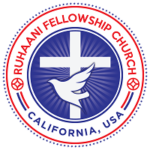A Deep Bible Study on Psalm 91
Psalm 91 is one of the most beloved passages in the Bible, renowned for its promises of protection and comfort. This psalm encapsulates the assurance that God is our refuge and strength, a theme that resonates deeply with believers. In this blog post, we will delve into the richness of Psalm 91, verse by verse, to uncover its profound truths and how they apply to our lives today. Understanding the Context The authorship of Psalm 91 is traditionally attributed to Moses, although some scholars suggest it could also be David. Regardless of the author, this psalm speaks powerfully about the character of God and His desire to protect His people. As we navigate through life’s uncertainties, it’s crucial to understand the promises contained within this psalm. The Assurance of God’s Protection The psalm begins with a declaration of trust: “He who dwells in the secret place of the Most High shall abide under the shadow of the Almighty” (Psalm 91:1). This verse sets the tone for the entire psalm. It emphasizes the importance of seeking refuge in God’s presence. The phrase “secret place” refers to a place of intimacy and communion with God, where we can find safety and security. Finding Refuge in God In a world filled with chaos and uncertainty, we often seek refuge in various things—relationships, careers, or material possessions. However, the psalmist reminds us that true refuge is found only in God. By choosing to dwell in His presence, we align ourselves with His protection and guidance. The Shadow of the Almighty The imagery of “the shadow of the Almighty” evokes a sense of closeness and safety. Just as a shadow provides cover from the harsh sun, God’s presence shields us from the trials of life. When we are under His shadow, we are assured that nothing can harm us without His permission. Promises of Deliverance As we progress through the psalm, we encounter several promises of deliverance. Verse 3 states, “Surely He shall deliver you from the snare of the fowler and from the perilous pestilence.” Here, the psalmist highlights God’s ability to rescue us from traps and dangers that we may not even be aware of. God’s Active Protection This verse reassures us that God is actively working on our behalf. He sees the dangers that lurk in the shadows and intervenes to protect us. Our role is to trust in His sovereignty and to remain close to Him, allowing His power to work in our lives. The Comfort of His Presence Verse 4 beautifully illustrates this idea: “He shall cover you with His feathers, and under His wings, you shall take refuge.” This imagery of a mother bird sheltering her young encapsulates God’s nurturing and protective nature. In times of distress, we can find comfort knowing that we are enveloped in His love and care. Faith as Our Shield Continuing in verse 4, we see that “His truth shall be your shield and buckler.” Here, the psalmist emphasizes the importance of God’s truth in our lives. When we stand firm on His promises, we create a shield against the lies and fears that the enemy may try to use to undermine our faith. Fear Not: God’s Promises of Safety As we reflect on the subsequent verses, we encounter powerful affirmations of God’s protection. “You shall not be afraid of the terror by night, nor of the arrow that flies by day” (Psalm 91:5). This declaration encourages us to cast aside fear, knowing that God is our defender at all times. His Angels Guarding Us Verse 11 states, “For He shall give His angels charge over you, to keep you in all your ways.” This promise assures us that God has assigned angels to watch over us. They are His messengers and protectors, working in tandem with His divine will to ensure our safety. The Ultimate Victory In verse 15, God promises, “I will be with him in trouble; I will deliver him and honor him.” This verse encapsulates the essence of our relationship with God. He does not promise a life free from challenges, but He assures us of His presence in the midst of them. Our struggles are not in vain; they are opportunities for God to demonstrate His faithfulness. Long Life and Salvation The psalm concludes with a powerful promise: “With long life, I will satisfy him and show him My salvation” (Psalm 91:16). This verse encompasses both the physical and spiritual dimensions of life. God’s promise of longevity and salvation speaks to His desire for us to experience a full and abundant life, filled with His presence and grace. Applying Psalm 91 to Our Lives As we reflect on the truths found in Psalm 91, we are reminded of the importance of dwelling in God’s presence. In a world that often feels chaotic and uncertain, we can find solace in the promises of protection, comfort, and deliverance. It is essential to cultivate a relationship with God, allowing His truth to guide and shield us against the challenges we face. Practical Steps to Dwell in His Presence Conclusion Psalm 91 is a treasure trove of promises that speak to the heart of every believer. As we explore its depths, we are reminded of God’s unwavering love and faithfulness. Let us take refuge in Him, confident that He is our protector, guide, and source of strength. May we dwell in the secret place of the Most High and find comfort in the shadow of the Almighty. Stay connected with us on social media for more uplifting content and community engagement. You can follow us on Instagram.









